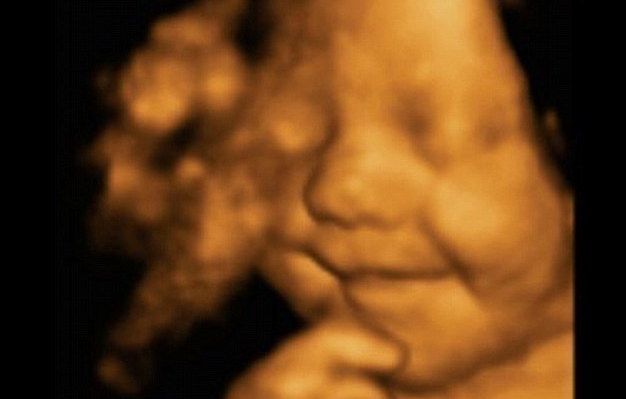Some of America’s wealthiest pro-abortion groups filed a lawsuit Friday challenging a Georgia law that protects unborn babies after their heartbeats are detectable.
WSBTV reports the American Civil Liberties Union, the ACLU of Georgia, the Center for Reproductive Rights and Planned Parenthood believe the pro-life law is unconstitutional and should be overturned.
The heartbeat law “will prevent Georgians from exercising their fundamental constitutional right to decide whether to have an abortion prior to viability and will threaten other critical medical care for pregnant women, causing irreparable harm,” the pro-abortion groups argued in their lawsuit.
CNN reports the groups said the law violates the rights to privacy and liberty guaranteed by the Fourteenth Amendment.
“Georgia is one of nine states that have passed abortion bans this year in the hopes of overturning Roe v. Wade,” said Nancy Northup, CEO of the Center for Reproductive Rights, in a statement. “None of these laws are in effect, and we are fighting to keep it that way.”
State lawmakers expected a legal challenge when they passed the heartbeat law earlier this spring. If allowed to be enforced, the law would ban abortions on an unborn baby after their heartbeat is detectable, around six weeks. Exceptions would be allowed for rape, incest and threats to the mother’s life.
In addition, the law would allow parents to claim unborn babies as dependents on their taxes and include the unborn baby in census data. It also would allow mothers to collect child support for pregnancy and delivery costs from the father prior to the baby’s birth.
PRO-LIFE COLLEGE STUDENT? LifeNews is looking for interns interested in writing, social media, or video creation. Contact us today.
The law is slated to go into effect on Jan. 1, 2020, but many believe a federal court will block the state from enforcing the law before then.
Northup claimed the abortion advocacy groups are fighting for the American people.
“For nearly half a century, the Supreme Court has protected the right to abortion, and we know the majority of Americans continue to support abortion access,” she said.
However, polls indicate otherwise. In May, a Hill-HarrisX survey found that 55 percent of voters said they do not think laws banning abortions after six weeks – when an unborn baby’s heartbeat is detectable – are too restrictive, according to The Hill.
The findings are not unique. Gallup polls consistently have found that a majority of Americans think all or most abortions should be illegal. In 2018, 53 percent of respondents said abortions should be legal in only a few (35 percent) or no circumstances (18 percent).
“Common sense tells us if you look at a child in the womb with a beating heart and a distinct blood type, and you ask a preschooler, a small child, ‘What are you looking at?’ … They would look and say that’s a baby,” Georgia Gov. Brian Kemp said when he signed the law in May.
The Republican governor said they are prepared to defend the law in court.
“(The bill) is very simple but also very powerful: a declaration that all life has value, that all life matters, and that all life is worthy of protection,” he said at the time. “I realize that some may challenge it in a court of law. But our job is to do what is right, not what is easy. We are called to be strong and courageous, and we will not back down. We will always continue to fight for life.”
Some pro-lifers have renewed hope that the new conservative-majority U.S. Supreme Court will uphold an abortion ban and overturn Roe v. Wade. Others, however, are hesitant because of concerns about losing the court battle and being forced to reimburse pro-abortion groups for their legal fees.
Recently, a federal judge blocked Kentucky’s new heartbeat bill. In January, a judge also declared Iowa’s heartbeat law unconstitutional. North Dakota and Arkansas passed heartbeat bills several years ago, but federal courts struck down their laws as well.
The Eighth Circuit Court of Appeals said the following about its ruling on the six-week abortion ban: “Because there is no genuine dispute that (North Dakota’s law) generally prohibits abortions before viability — as the Supreme Court has defined that concept — and because we are bound by Supreme Court precedent holding that states may not prohibit pre-viability abortions, we must affirm the district court’s grant of summary judgment to the plaintiffs.”
There is more hope that the U.S. Supreme Court may consider an abortion ban, but it is difficult to say if it would for certain.
Other plaintiffs in the Georgia lawsuit include Sistersong Women of Color Reproductive Justice Collective, Feminist Women’s Health Center, Atlanta Comprehensive Wellness Clinic, Atlanta Women’s Medical Center, Carafem, Columbus Women’s Health Organization and Summit Medical Associates.








